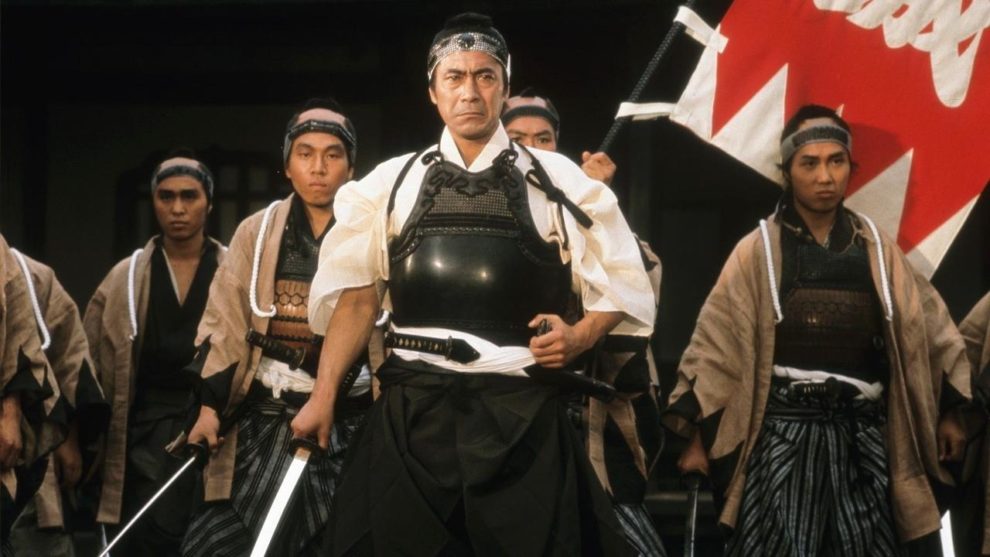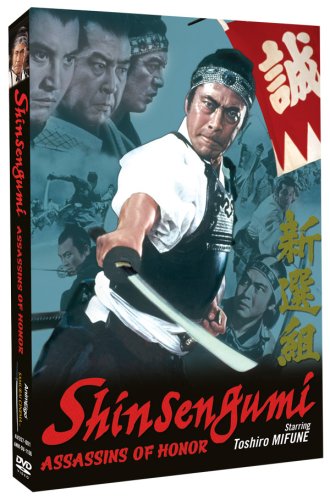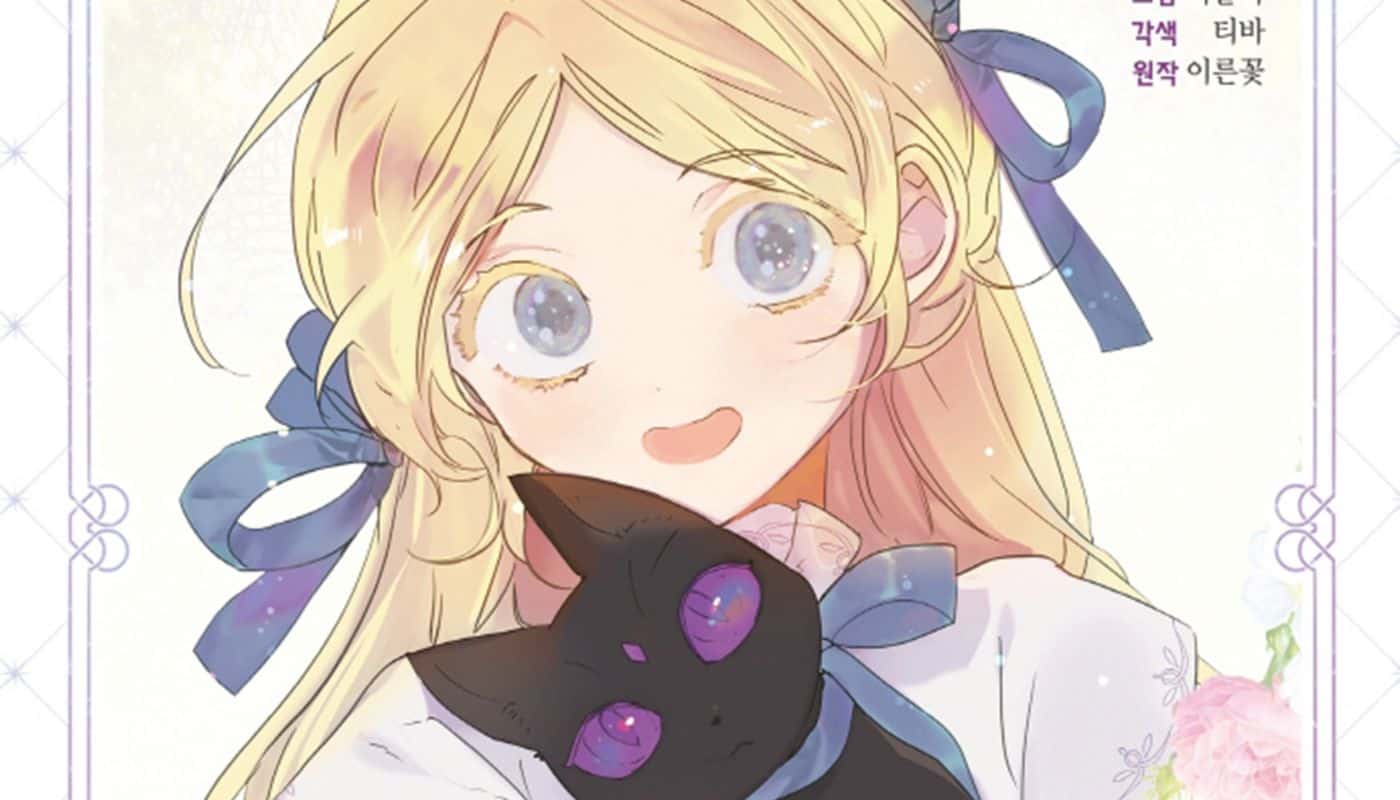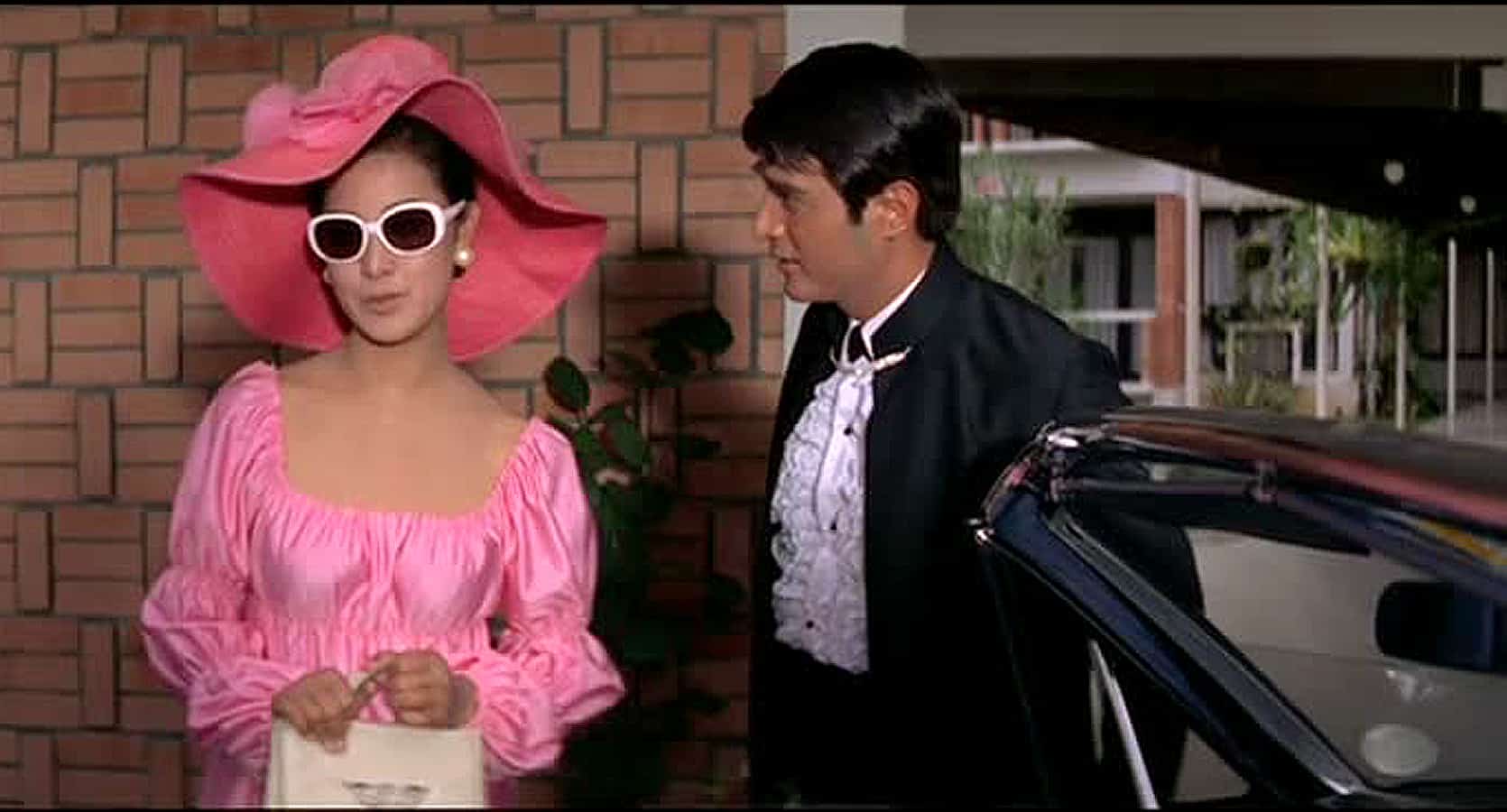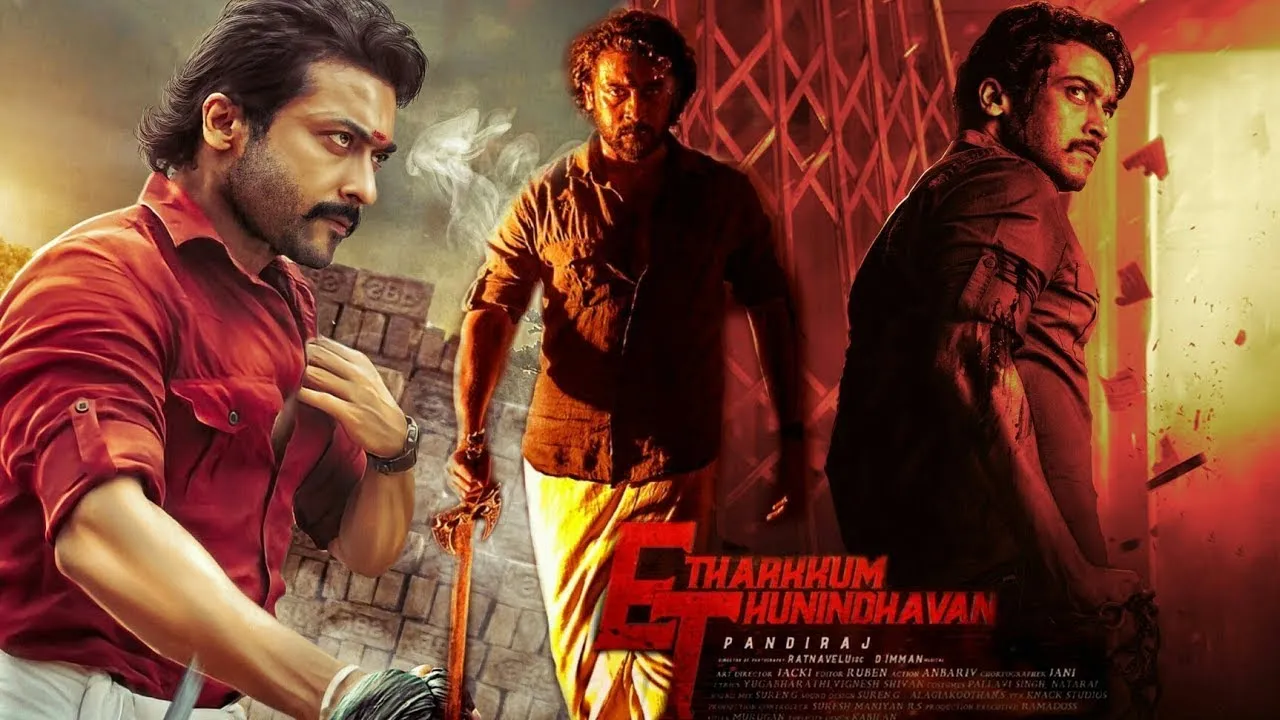The samurai special police force known as the Shinsengumi has been solidified as a significant part of Japanese history. The army of passionate warriors organized by the bakufu did everything in their power to try and protect the Tokugawa shogunate, as political conflict, bloodshed and war spread across Japan. Despite their controversial reputation, they remain popular in pop culture and entertainment. Various media would depict them, from anime to J-dramas to movies. One of the most popular feature films to adapt the true story of these violent warriors is Tadashi Sawashima's “Shinsengumi: Assassins of Honor.”
Director Tadashi Sawashima is primarily known for directing yakuza features. Still, he was no stranger to period pieces, so he is a fitting filmmaker to tell the story of the controversial bakufu swordsmen. Writing the screenplay is Kenro Matsuura and producing the project is not only Yoshio Nishikawa but also filmmaker Hiroshi Inagaki and actor Toshiro Mifune, who also stars in the film. Unfortunately, despite an impressive budget and an all-star cast, “Shinsengumi: Assassins of Honor” would be only a minor hit. Adding to this, it had tough competition as earlier the same year saw the release of Hideo Gosha's samurai movies “Goyokin” and “Hitokiri,” both of which were critical and financial successes. Yet, over time, “Shinsengumi” garnered fans, and it stands as one of the more popular pictures depicting the feared warriors.
As times change in the final years of the Bakumatsu period, Japan is in a state of chaos. Xenophobia and ultra-nationalism explode with the growing arrival of foreigners. In addition, the shogunate's power is fading and being shifted to the Emperor. In response, various samurai, peasants, and farmers band together to form the Shinsengumi. Initially, the squad is led by Serizawa Kamo, but eventually, Kondo Isami takes over and becomes the head commander. With his leadership and passionate dedication to the Bushido Code, Kondo and the rest of the warriors desperately fight to protect the shogunate representatives in Kyoto.
There is a lot of material to unpack with “Shinsengumi,” which can be potentially overwhelming for first-time viewers as there are numerous historical events playing out and various side stories simultaneously taking place. It can be easy to get lost in all this exposition and with so many characters to follow. The movie's biggest strength lies in the progression of Kondo Isami and the shown toll the warfare of the period takes on Japan. Rather than idolize the titular unit of warriors, the movie critically examines the Shinsengumi. Kondo's story, from the son of a farmer to a hefty leader, is not an inspirational heroic journey but a tragedy of a man's eccentric efforts ultimately being in vain. He is initially clouded by his ambitions that he comes off as downright cold and incentive, even neglecting his wife and children. As time passes, he begins to realize the path he has taken and the effects it has had on the world around him. The movie also shows the horrors of war and its impact on society while also addressing issues such as ultranationalism, extremism, and xenophobia.
Many recognizable talents appear in “Shinsengumi,” all of who do well in their roles. This includes Yoko Tsukasa as Kondo's gentle wife, Tsune, Keiju Kobayashi as the stern vice-commander Hijikata Toshizo, and Kinya Kitaoji in the part of the driven warrior Okita Soji who's battling tuberculosis. However, the one who steals the show is Toshiro Mifune in the role of Kondo Isami. Mifune does a great job and gives a lot of personality to the role, being appropriately authoritative and intimidating in many moments but also showing vulnerability at points. Effectively polar opposite to Kondo's calculated personality is Rentaro Mikuni, who nails it as the hot-headed alcoholic womanizer Kamo Serizawa. In a sad and sympathetic role, Katsuo Nakamura is fantastic as Kisaburo Kawai, an accountant who gets caught up in a deadly scandal. A very small but superb performance comes from Yuriko Hoshi, playing a woman named Otoka whose husband is killed by Kondo and becomes overwhelmed by the bloodshed that surrounds her.
Despite the production taking place during a time of compromised finances in Japanese filmmaking, “Shinsengumi: Assassins of Honor” is quite an impressively made movie, from the costumes to the set pieces. There is also a lot of intense action; one of the feature's most memorable sequences is the depiction of the Ikedaya incident in which the Shinsengumi battle against anti-shogunate activists. Even with some gory fight scenes, the film is also vibrant in color, and Kazuo Yamada's cinematography remains consistently solid throughout the whole runtime. Masaru Sato's music score is also quite good.
“Shinsengumi: Assassins of Honor” is a very good film worth checking out. The movie does a commendable job chronicling the events of the aggressive warriors that fought to protect the shogunate and with plenty of samurai action to deliver thrills. Sure, there is a lot to digest within the narrative, which can be, at times, overwhelming. Yet, it is an entertaining picture. It thankfully doesn't tread the path of blatantly glorifying the Shinsengumi but instead presents a grey area, by showing the darker side of some of their activity. All of this is topped with a stellar performance from Toshiro Mifune.


